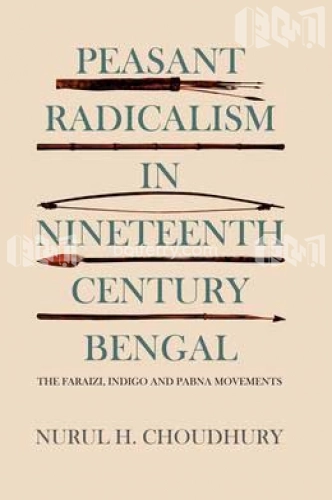This book seeks to analyze the fundamental sources of agrarian unrest in colonial Bengal. The British colonial policy not only disavowed the traditional economic security, it also threatened the economic survival or what the moral economists called the "subsistence ethic" of rural society. The result was a series of peasant movements in nineteenth century Bengal. The Faraizi, Indigo and Pabna movements were the most prominent among these peasant movements.
The Faraizi leadership identified the exploiters and used Islamic ideals as shield against them. In other words, religion was used as a means of mobilization of the Muslim masses against the zamindars and the indigo planters. The coercive policies of the planters and the declining economic condition of the peasants contributed to the Indigo movement. In this case, the leaders did not have to appeal to religious or ethnic sentiments of the peasants even though the planters belonged to different ethnic groups. Thus, economic needs had overshadowed the ethnic differences.
It seemed even more prominent in the Pabna movement when the Hindu peasants organized the movement against the Hindu zamindars to protest the enhancement of rent. In fact, these were among the first attempts by the Bengali peasants to organize themselves on a non-communal basis. This book also investigates the role of the jotedars in these movements
নুরুল এইচ চৌধুরী এর Peasant Radicalism in Nineteenth Century Bengal এখন পাচ্ছেন বইফেরীতে মাত্র 450.00 টাকায়। এছাড়া বইটির ইবুক ভার্শন পড়তে পারবেন বইফেরীতে। Peasant Radicalism in Nineteenth Century Bengal by Nurul H. Choudhuryis now available in boiferry for only 450.00 TK. You can also read the e-book version of this book in boiferry.















